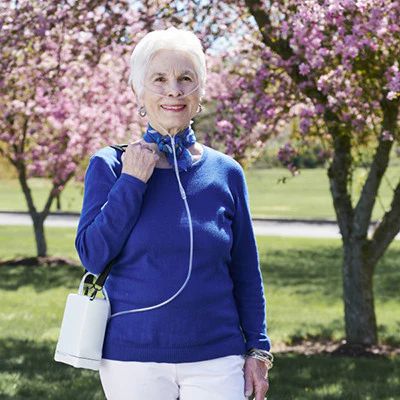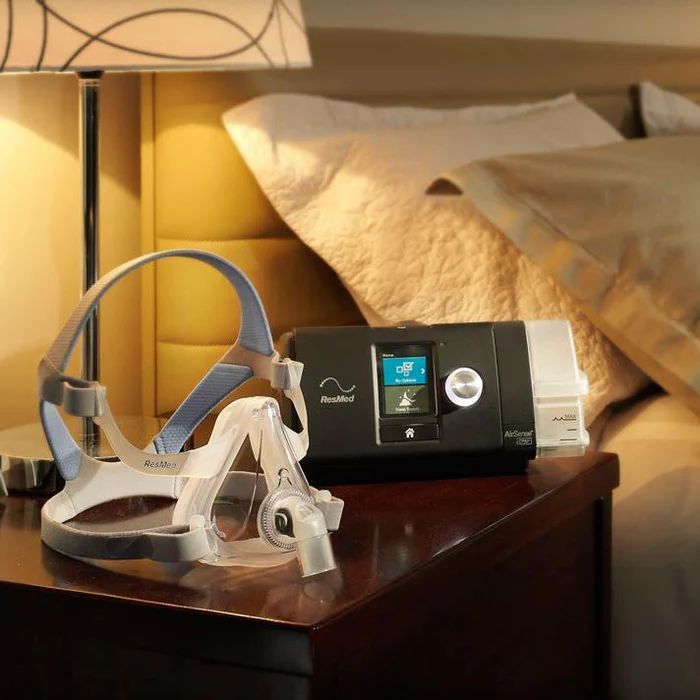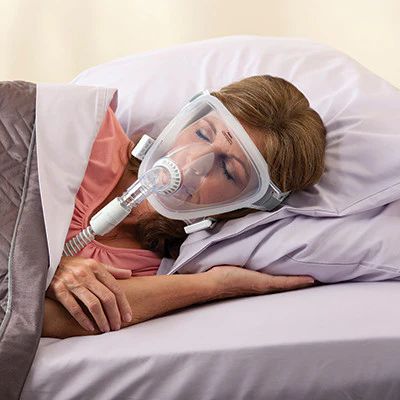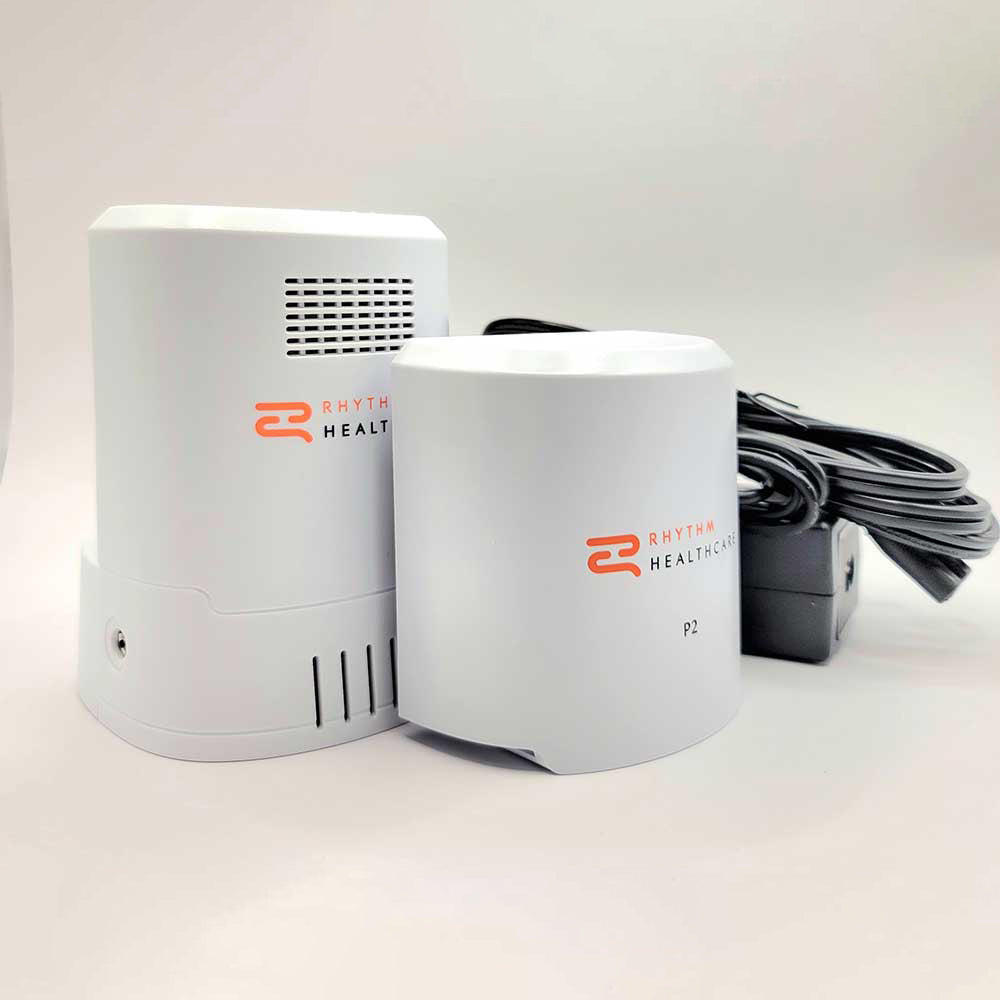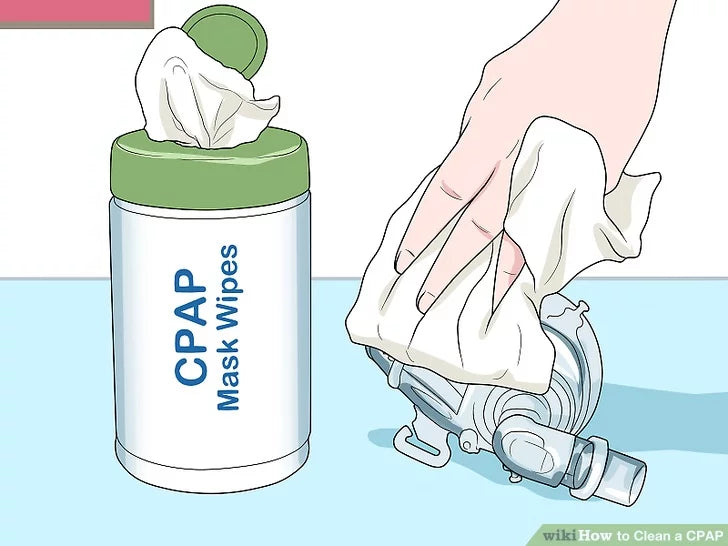In our first ever Blog post, I present you with an overview of what a portable oxygen concentrator is and how you can benefit from owning your own. I've also included some helpful links to additional information that you might find useful as you strive to live your active lifestyle!
Living with COPD
Chronic obstructive pulmonary disease (COPD) is a serious and life-altering medical condition. While being diagnosed with COPD is frightening, there are things that you can do to make the best out of your situation. Studies have shown that incorporating supplemental oxygen therapy in the COPD treatment program not only prolongs life, but improves the quality of life at the same time. LTOT (long term oxygen therapy) is prescribed by a physician and guided by oxygen levels in the blood according to the COPD Foundation.
“Some patients with COPD have trouble getting oxygen into the bloodstream,” explained Scott Cerreta, BS, RRT, director of education at the COPD Foundation. “Our muscles require oxygen to function properly.” Typically, oxygen users need more supplemental oxygen during exertion. Things like walking, exercising, climbing stairs create a sensation of breathlessness and reduce the confidence to accomplish daily activities. This is a double-edged sword. We need exercise to remain healthy, we need activity to remain happy, but we feel poorly when we attempt to exercise due to our COPD.
What is a Portable Oxygen Concentrator?
Commonly referred to as a POC, or Portable Concentrator, these devices have been around for over ten years. But it wasn’t until recently that the technology started catching up with the vision. Instead of a stationary machine that plugs into the wall and resembles a large suitcase, a POC is stylish, lightweight, and quiet. They come in many shapes and sizes, with different configurations, and different abilities to meet an individual patient’s needs. But one thing they all deliver is portability. And portability translates to mobility and freedom.
POCs are compact, portable, lightweight, and stylish, oxygen producing machines. They range in weight from 3 lbs to 18 lbs. Some are carried over your shoulder, some fit in a small backpack, and others come with collapsible carts that are easily rolled from place to place. Each POC makes its own oxygen by drawing in room air, filtering out the nitrogen, and then releasing purified O2 to the user. Because of this, it will never “run out of oxygen.” They do, however, require a power source like electricity or battery power. Some of the newest units to come to market are incredibility lightweight and small. But as the unit gets smaller, the less oxygen flow the unit can put out. That is the trade-off for reducing size.
Over the past couple of years, there have been so many new POCs introduced, that selecting a device is complicated and patient’s need to be specifically matched with the best choice to maximize their clinical benefit. The only way to do this is to treat every patient individually and take the time to fully evaluate their needs. Not all portable oxygen concentrators perform the same. Unfortunately, the two criteria that most often drive patient choice are price and weight of the unit. “Thus, patients make selections based on physical characteristics of the equipment and not performance” says Cerrata. That can be a problem for patient as the POC may not meet their clinical needs. Again, the main reason why every patient should be consulting with a company that has respiratory therapists available to discuss the best options.
Because the equipment is so varied, patients must be matched - generally by home care oxygen delivery companies - for each specific piece of equipment. "This causes a large gap in adherence and places a strain on the provider," Cerreta explained. Online companies can add to the confusion. Many of them have no clinical expertise or Respiratory Therapists on staff. They may understand their product, but when it comes to making a good fit, they lack the support staff to address the clinical side of the equation. That said, there are companies online that operate more like a traditional brick & mortar DME company in that they have all the expertise and therapists, so you still get the same level of clinical care and support with the convenience of shopping from your own home.
Will my insurance company pay for it?
Most insurance companies do not distinguish a POC from traditional stationary concentrators in terms of reimbursement. And because a POC is significantly more expensive that a stationary concentrator, most DME companies will not provide a POC and bill your insurance. That means it is considered a “retail” purchase. This is causing some issues as patients make purchase decisions based on price instead of considering what product offers the best match to their needs. So, when choosing a retailer, make sure you find out how much experience they have dealing with oxygen patients, do they employ Respiratory Therapists, and what support will they offer if you have questions after the sale. Portable oxygen concentrators are not only a financial investment, but a personal health investment, as well. Companies such as the Active Lifestyle Store, which grew from years of experience servicing traditional oxygen patients, are a perfect choice when it comes to shopping for a POC. They take the time to learn about you and understand your needs (both clinical and lifestyle) before suggesting the best fit. Do your homework, ask questions, and don’t shop strictly on price. There are far more considerations than simply cost.
Why can a POC be a good idea if I have COPD?
Portable oxygen concentrators provide mobility through portability. Mobility encourages exercise. Exercise is proven to prolong life in COPD patients. A portable oxygen concentrator makes mobility easier. A quick Google search will turn up hundreds of satisfied POC users. There are also numerous videos available online with real people discussing their own experience with portable concentrators. There is even a choir comprised exclusively of POC users. Check it out at https://www.youtube.com/watch?v=3WOJJ7NMJ80.
Where can I learn more about POCs?
The American Association for Respiratory Care (AARC) produced A Guide to Portable Oxygen Concentrators. "The AARC's guide allows patients to be more informed and make better decisions," Cerreta shared. Check out the article at http://www.copdfoundation.org/Downloads/POC-Final.pdf.
You can also partner with a trusted oxygen company that can guide your decision based on your individual needs and desires. Learn more at www.ActiveLifestyleStore.com.

